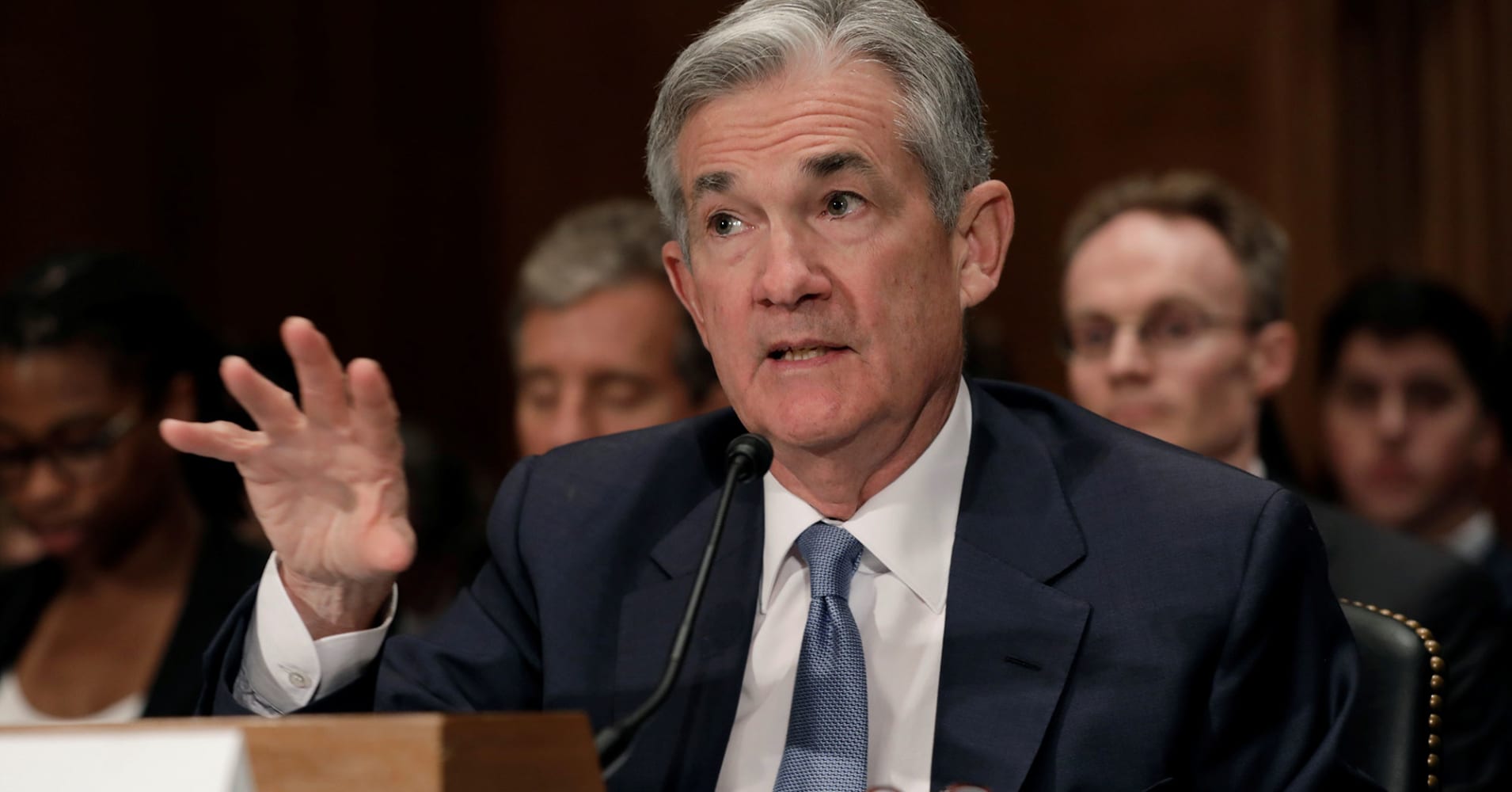
The Fed is expected to upgrade its view of the economy when it meets this week, but it`s unlikely to publicly discuss one of the bigger risks for the economy — potential trade wars.
The Fed begins its two-day meeting Tuesday, and it is expected to raise interest rates by a quarter point. The Fed is also expected to upgrade its view of the economy when it releases its statement and new economic and interest rate forecasts Wednesday afternoon.
But the Fed will probably not even mention the trade issues that are worrying markets and could potentially become a bigger issue for the economy if President Donald Trump continues to take actions against trading partners.
The Trump administration is reportedly prepared to impose $60 billion in annual tariffs against China on Friday, punishing it for intellectual property infringement, according to the Washington Post. The president has already signed an order imposing tariffs on steel and aluminum imports from most countries.
This week`s Fed meeting is also the first to be led by Fed Chair Jerome Powell, and he will hold a press briefing following it. But Fed watchers expect him to stay away from the topic of tariffs, even if asked.
"It`s a land mine, and we don`t know all the details yet. This is one of those things, especially for Powell. He has made it clear he colors within the lines," said Grant Thornton Chief Economist Diane Swonk. She said Powell will stick to the Fed`s dual mandate on inflation and employment and not veer into fiscal policy.
"It will be in the minutes. We`ll find out in three weeks what they think. He will be asked about it, and if I were him I would say we don`t know the full extent," she said. Swonk said it is difficult for any economist to gauge the impact of tariffs because it`s still unknown what is planned and then it`s unclear what kind of reaction it might trigger from trading partners, who could retaliate with their own tariffs.
"I`ll be surprised if they go there. In part, becuse they don`t really know what the president has in mind," said Mark Zandi, chief economist at Moody`s Analytics. "[Powell] will punt. He`ll say: `It depends on what the president ultimately settles on. It`s very uncertain. At this point, it`s speculation and I can`t comment on it.`"
Zandi said if tariffs lead to retaliation, it could be a negative for the economy. "It`s certainly going down a rabbit hole. You don`t know where it`s going to end up, and if it`s just tariffs on steel and aluminum, and our partners retaliate in kind, no big deal. It `s just on the margin. If the president picks a fight with China and raises tariffs on $60 billion of imports, that`s about a 10 percent tariff on most Chinese imports to the U. That will be meaningful. That would have a macroeconomic impact."
The Trump administration is also in the process of renegotiating the North American Free Trade Agreement with Mexico and Canada.
"If NAFTA`s repealed, it`s a half percent of growth in the first year it happens, which would offset fiscal stimulus," Swonk said.
Swonk said another danger from trade actions is that they cause uncertainty.
"What we do know is it`s uncertainty, and uncertainty causes hesitation, and if there`s a real threat of a trade war, if it does escalate, it could be hesitation on investment which would undermine the benefits implicit in tax reform," she said.
The Fed is expected to upgrade its forecast to include the impact from tax reform, and it could boost its expectations slightly for inflation.
It`s unclear whether the Fed will increase its forecast for interest rate hikes for this year or next. Swonk expects the Fed to retain three rate hikes for 2018, but some economists expect it to show four hikes for this year.


0 comments:
Post a Comment